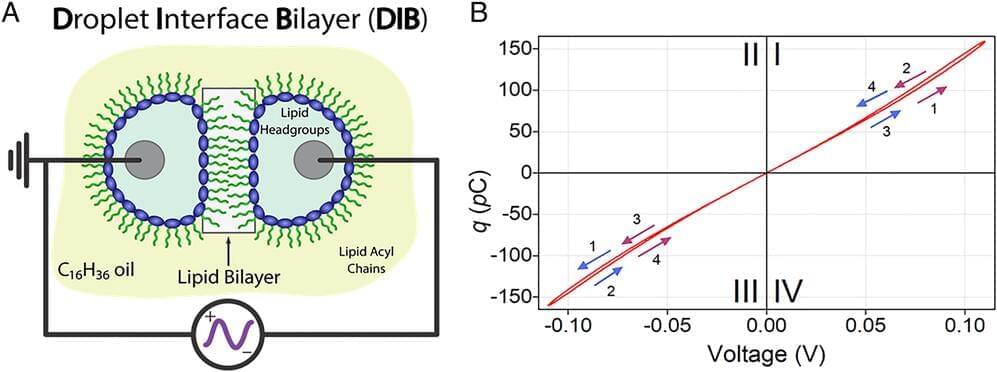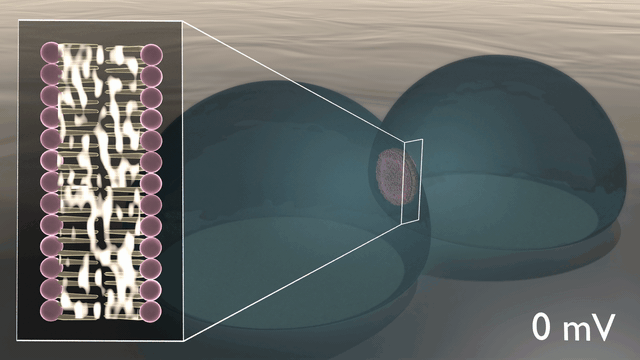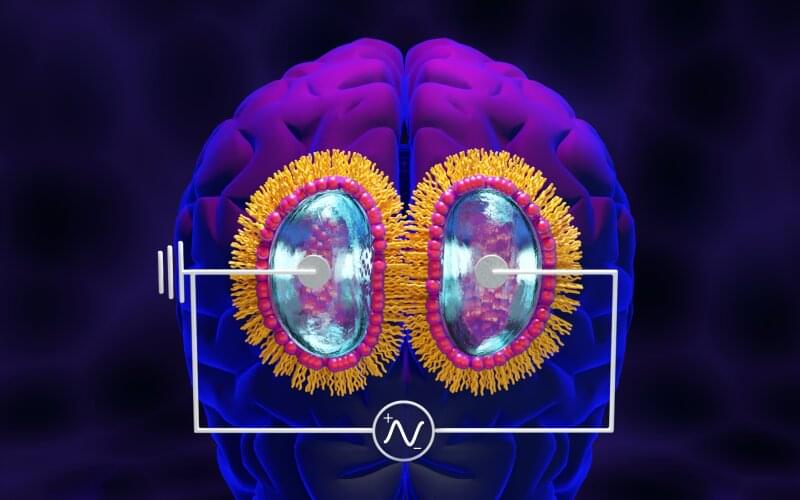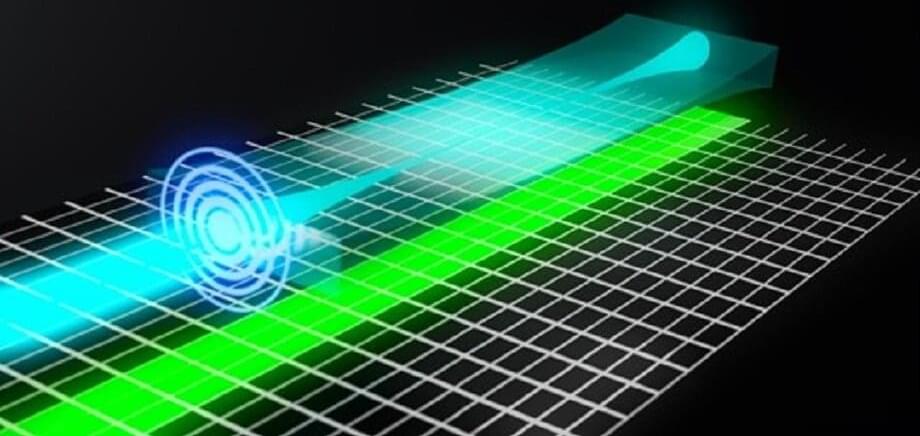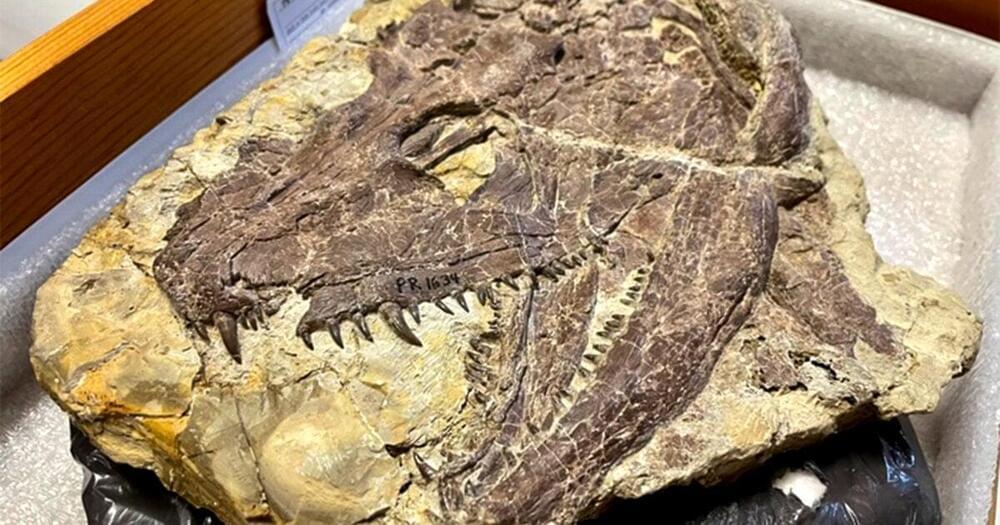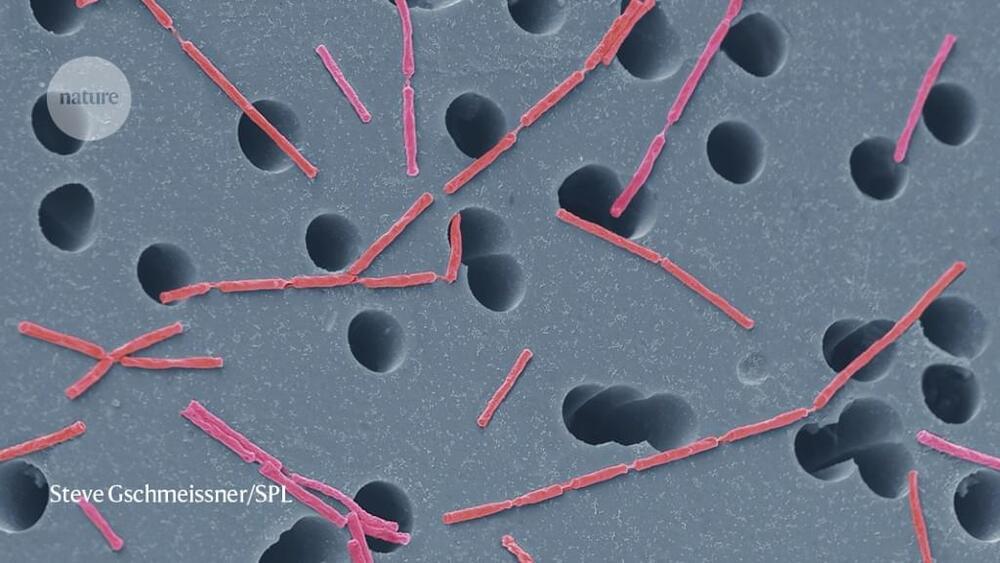Biological supramolecular assemblies, such as phospholipid bilayer membranes, have been used to demonstrate signal processing via short-term synaptic plasticity (STP) in the form of paired pulse facilitation and depression, emulating the brain’s efficiency and flexible cognitive capabilities. However, STP memory in lipid bilayers is volatile and cannot be stored or accessed over relevant periods of time, a key requirement for learning. Using droplet interface bilayers (DIBs) composed of lipids, water and hexadecane, and an electrical stimulation training protocol featuring repetitive sinusoidal voltage cycling, we show that DIBs displaying memcapacitive properties can also exhibit persistent synaptic plasticity in the form of long-term potentiation (LTP) associated with capacitive energy storage in the phospholipid bilayer. The time scales for the physical changes associated with the LTP range between minutes and hours, and are substantially longer than previous STP studies, where stored energy dissipated after only a few seconds. STP behavior is the result of reversible changes in bilayer area and thickness. On the other hand, LTP is the result of additional molecular and structural changes to the zwitterionic lipid headgroups and the dielectric properties of the lipid bilayer that result from the buildup of an increasingly asymmetric charge distribution at the bilayer interfaces.
